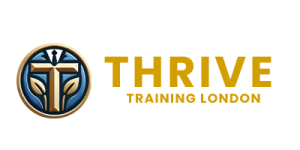Discover
Financial Markets and Instruments
YOUR PATHWAY TO SUCCESS
Our Introduction to Banking and Financial Systems course teaches you how to effectively articulate financial insights and data, ensuring you can persuasively share critical information.
Register Now
Take the next step in your learning journey and enroll in our course today! Whether you’re looking to upgrade your skills, advance your career, or explore a new passion, this course is designed to help you succeed. Secure your spot now and gain instant access to expert-led lessons, practical insights, and valuable resources. Don’t miss this opportunity—register now and start learning!
Course Duration
5 Days
Course Details
Financial Markets and Instruments” short course provides a comprehensive introduction to the structure, functions, and operations of financial markets, along with an in-depth exploration of key financial instruments. Over five days, participants will gain a clear understanding of how financial markets facilitate economic growth, the role of different market participants, and the various instruments used for investment, funding, and risk management. This course is designed for professionals, students, and anyone interested in understanding how financial markets operate and how different instruments—such as stocks, bonds, derivatives, and foreign exchange—are traded globally.
By the end of the “Financial Markets and Instruments” course, learners will be able to:
- Understand the Structure of Financial Markets– Explain the functions, types, and importance of financial markets in the global economy.
- Identify Key Financial Instruments– Describe various financial instruments, including equities, bonds, derivatives, foreign exchange, and money market instruments.
- Analyze Market Participants and Their Roles– Understand the roles of investors, financial institutions, regulatory bodies, and intermediaries in financial markets.
- Examine Pricing Mechanisms and Market Dynamics– Learn how financial instruments are valued and the factors influencing price movements.
- Understand Regulatory Frameworks and Compliance– Gain insights into the legal and regulatory environment governing financial markets and instruments.
- Explore Risk Management Strategies– Identify financial risks and learn how different instruments, such as derivatives and hedging techniques, are used to manage them.
- Evaluate Investment Strategies– Understand basic investment principles, portfolio diversification, and strategies for maximizing returns while managing risks.
- Explore Innovations in Financial Markets– Learn about the impact of FinTech, digital assets, blockchain technology, and algorithmic trading on modern financial markets.
- Apply Knowledge to Real-World Scenarios– Use case studies and practical exercises to analyze market trends and make informed financial decisions.
The “Financial Markets and Instruments” course is ideal for:
- Finance and Banking Professionals– Individuals working in banking, investment firms, or financial institutions who want to deepen their understanding of financial markets and instruments.
- Aspiring Investors and Traders– Individuals interested in stock markets, bonds, forex, and derivatives who want to develop a strong foundation in trading and investment strategies.
- Students and Graduates– University students or recent graduates in finance, economics, or business who want to enhance their knowledge of financial markets for academic or career purposes.
- Business Owners and Entrepreneurs– Entrepreneurs looking to understand how financial markets impact businesses, investment opportunities, and risk management strategies.
- Corporate Finance and Treasury Professionals– Employees managing financial assets, investments, or corporate treasury functions who need a solid understanding of financial instruments and markets.
- Regulators and Government Officials– Public sector employees working in financial regulation, economic policy, or banking supervision who require knowledge of market structures and regulatory frameworks.
- General Financial Enthusiasts– Anyone with an interest in financial markets and instruments who wants to develop their financial literacy and investment acumen.
Course Outline
5 days Course
Introduction to Financial Markets
- Overview of financial markets and their role in the economy
- Classification of financial markets: Capital markets, money markets, derivatives markets, and forex markets
- Key participants in financial markets: Investors, banks, hedge funds, regulators, and institutions
- Market efficiency and price discovery mechanisms
- The impact of macroeconomic factors on financial markets
Overview of Financial Instruments
- Equities (Stocks): Types, valuation, and trading mechanisms
- Fixed-income securities (Bonds): Characteristics, pricing, and yield calculations
- Money market instruments: Treasury bills, commercial paper, certificates of deposit
- Foreign exchange (Forex): Exchange rate determination, currency pairs, and forex trading
- Introduction to commodity markets and their financial instruments
Derivatives and Risk Management
- Introduction to derivatives: Futures, options, swaps, and forwards
- How derivatives are used for hedging, speculation, and arbitrage
- Pricing and valuation of options and futures contracts
- The role of derivatives in risk management and portfolio diversification
- Case studies on real-world applications of derivatives in financial markets
Regulatory Frameworks and Market Governance
- Overview of financial market regulations and key regulatory bodies (SEC, FCA, Basel Committee, etc.)
- Securities laws and investor protection
- Anti-money laundering (AML) and compliance requirements
- The impact of financial crises on market regulations
- Ethical considerations and corporate governance in financial markets
Innovations and Future Trends in Financial Markets
- The rise of financial technology (FinTech) and digital financial markets
- Algorithmic trading and artificial intelligence in financial markets
- Blockchain technology, cryptocurrencies, and decentralized finance (DeFi)
- Sustainable finance and ESG (Environmental, Social, and Governance) investing
- Case study discussions and final course assessment
Conclusion & Assessment:
- Review of key concepts covered during the course
- Interactive discussions and Q&A session
- Case studies and real-world applications
- Certificate distribution and feedback session

